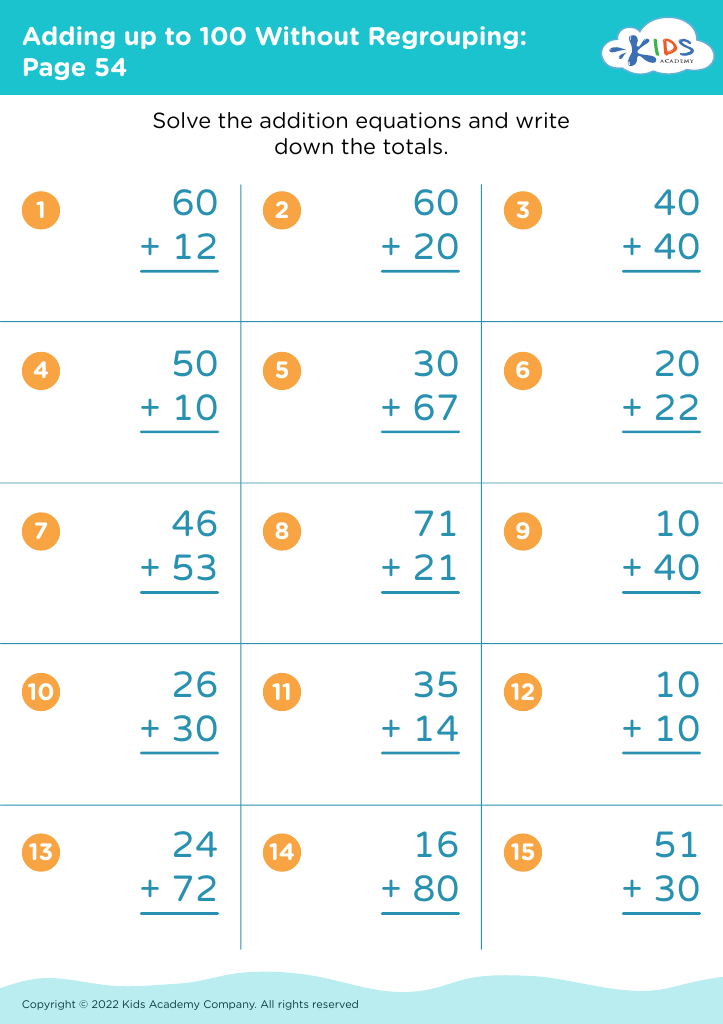Fraction conversion Addition Worksheets for 8-Year-Olds
3 filtered results
-
From - To
Enhance your child's math skills with our engaging Fraction Conversion Addition Worksheets designed for 8-year-olds! These worksheets provide a fun and interactive way for young learners to grasp the concept of fractions and their conversions. Through various exercises, students will practice adding fractions with like and unlike denominators, building their confidence in foundational math concepts. Our user-friendly worksheets are perfect for home study or classroom use, ensuring kids stay motivated while strengthening their problem-solving abilities. Download now and help your child master the art of fraction addition, paving the way for future math success! Ideal for both parents and educators.
Parents and teachers should care about fraction conversion and addition for 8-year-olds because these concepts are foundational skills in mathematics that set the stage for more advanced learning. Understanding fractions is crucial as they gradually become part of everyday life and future academic contexts. Mastering fractional addition helps children enhance their problem-solving abilities and improve their numerical fluency—essential skills for future mathematical success.
At this age, children are developing critical thinking skills, and working with fractions encourages them to think about quantities more abstractly. Learning how to convert and add fractions fosters a deeper understanding of numbers, as children explore relationships between parts and wholes. Moreover, this knowledge is essential when tackling topics like measurement and ratios, which are vital in many real-world situations.
Furthermore, inconsistencies in foundational fraction skills can lead to struggles in higher-level mathematics, resulting in a lack of confidence and a negative attitude toward math. By emphasizing the importance of fraction conversion and addition, parents and teachers can create a supportive learning environment that encourages children to engage with mathematics positively. Establishing a strong foundation in fractions not only boosts academic performance but also instills lifelong skills of analytical thinking and perseverance.
























